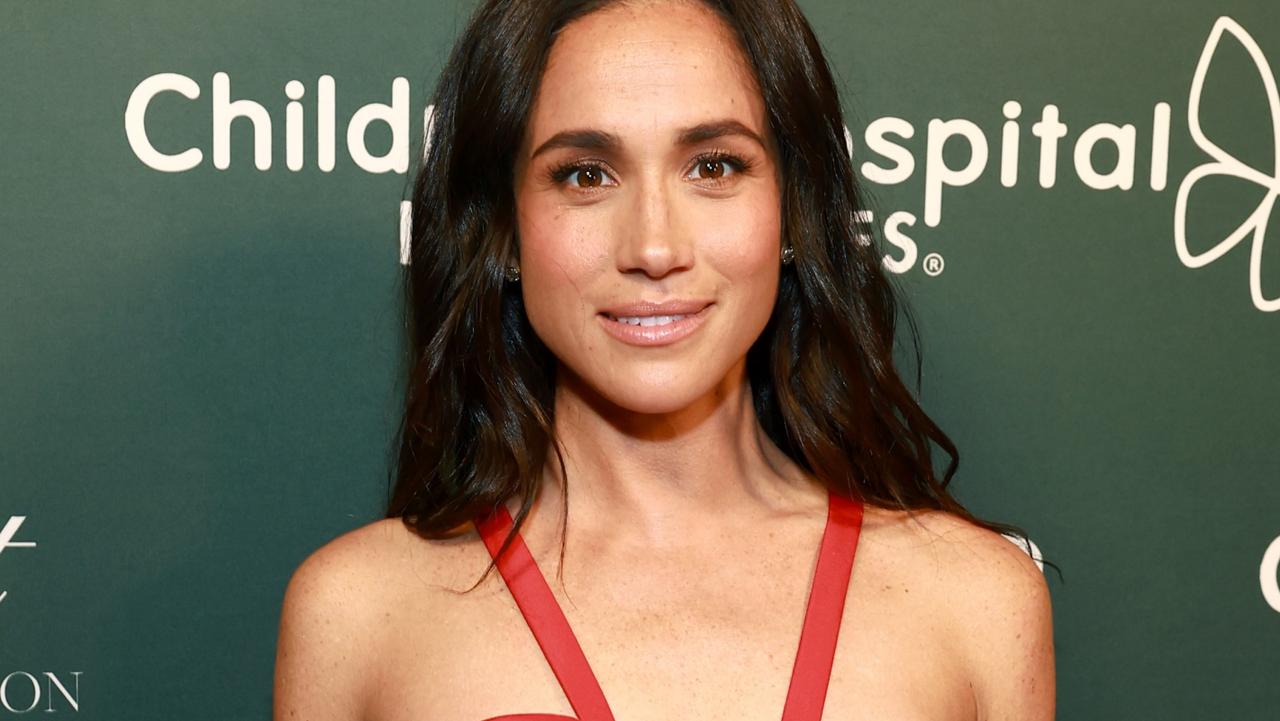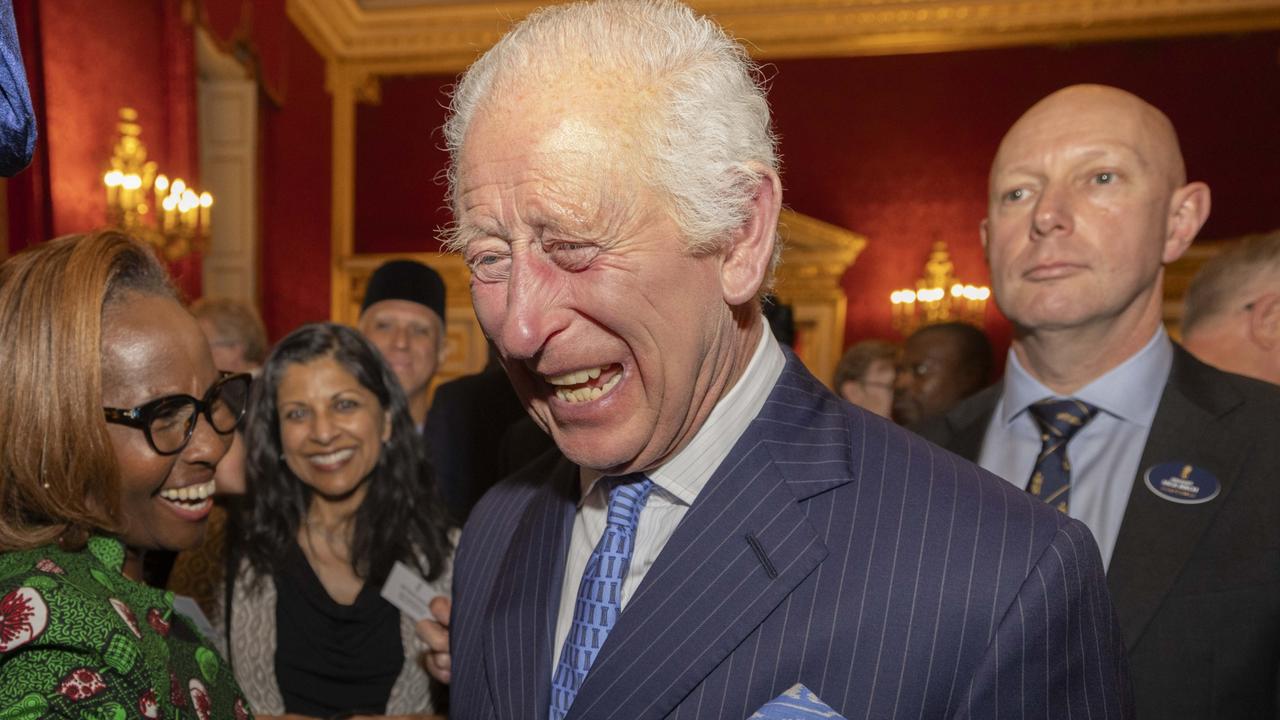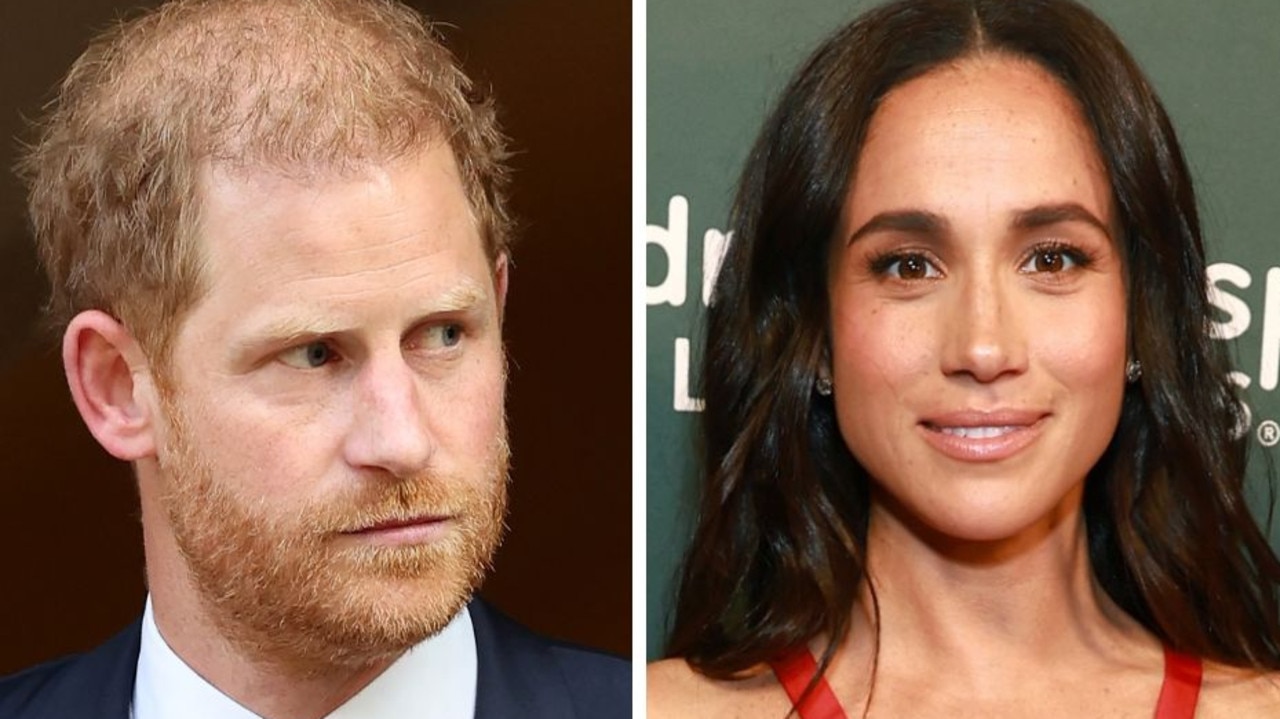Prince Harry gives evidence in phone hacking case
Prince Harry’s historic day in court included the release of an explosive witness statement, as he also faced a brutal cross-examination.

Royals
Don't miss out on the headlines from Royals. Followed categories will be added to My News.
Prince Harry has given evidence in his phone hacking case against multiple British newspapers, and has become the most senior member of the royal family to be cross-examined since the 1890s.
The Duke of Sussex, 38, pulled up to the High Court in a black Range Rover and entered the building shortly before 10am on Tuesday, local time, passing a waiting media pack.
He entered the courtroom shortly before 10.30am and shook hands with his legal team before taking the stand and being sworn in.
Harry is among multiple claimants suing Mirror Group Newspapers. He accuses journalists from tabloid newspapers The Daily Mirror, The Sunday Mirror and The Sunday People of using illegal methods, including phone hacking, to obtain stories on him during multiple periods between 1996 and 2011.
There are more than 100 claimants in total, including singer Cheryl Cole, former footballer Ian Wright, actor Ricky Tomlinson and the estate of George Michael, though Harry is one of only four who will have their specific, “representative” claims heard.
The other three are Michael Turner and Nikki Sanderson, both actors, and Fiona Wightman, who is the ex-wife of comedian Paul Whitehouse.
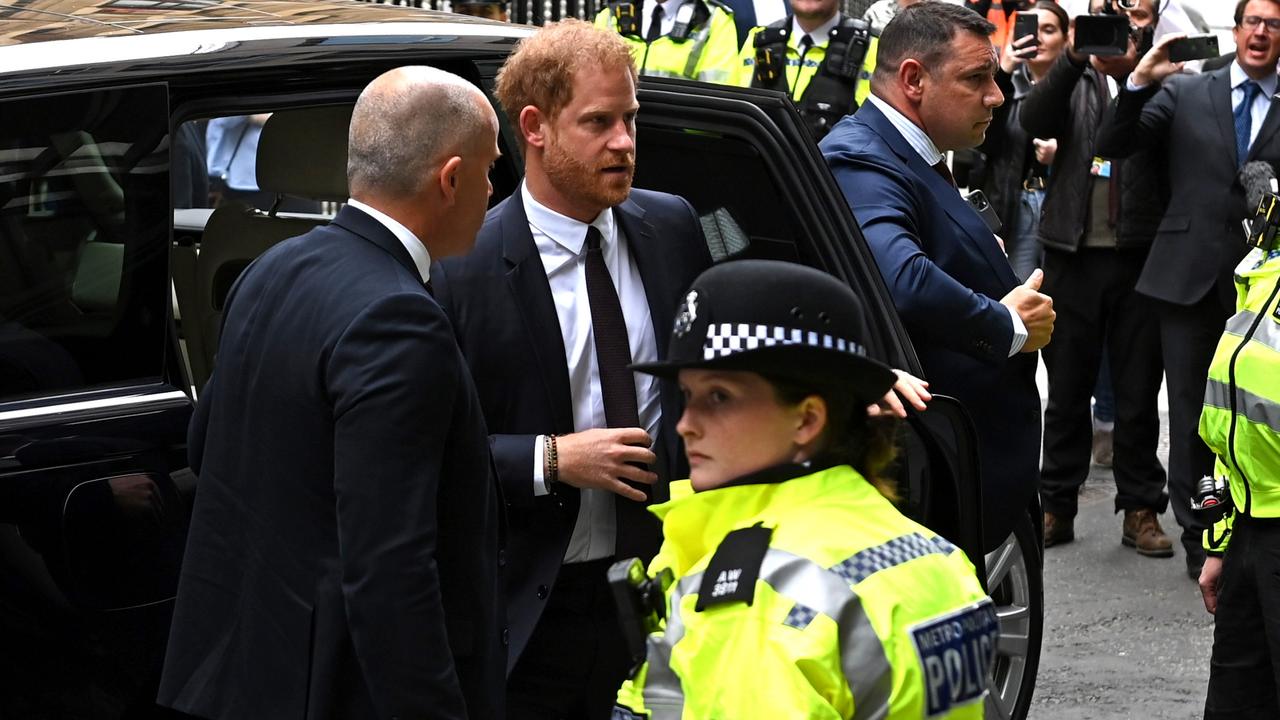
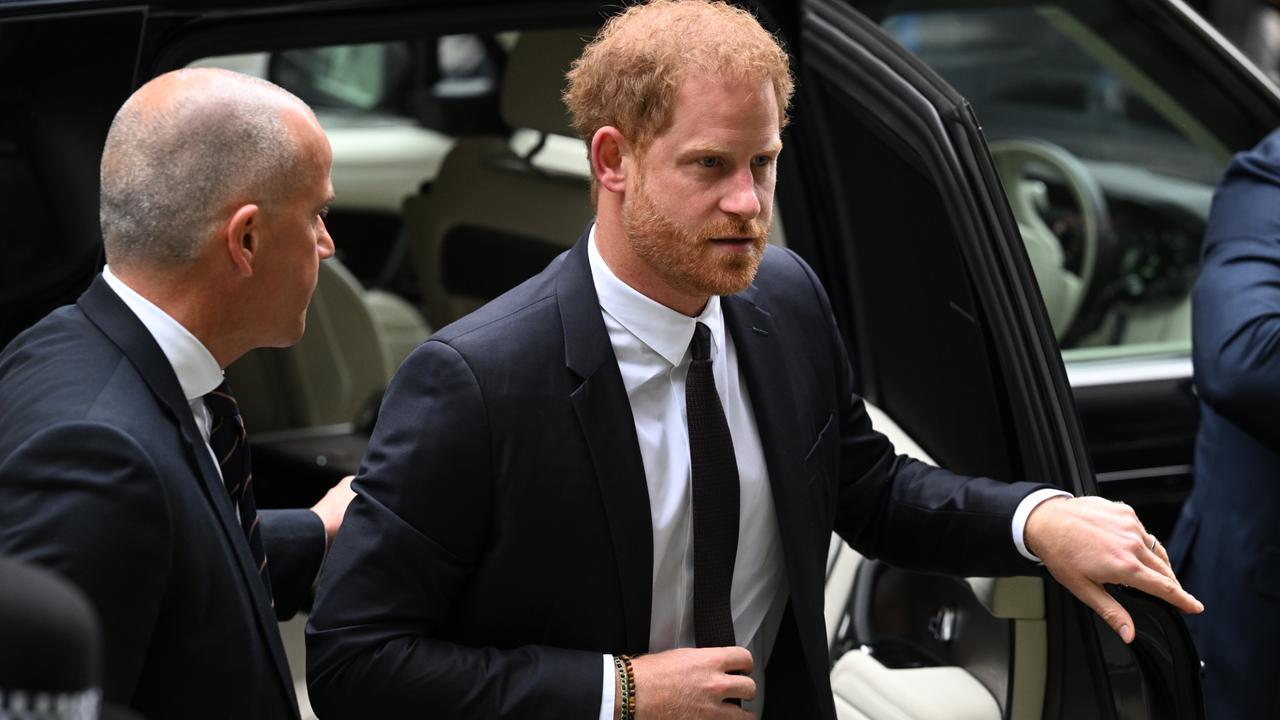
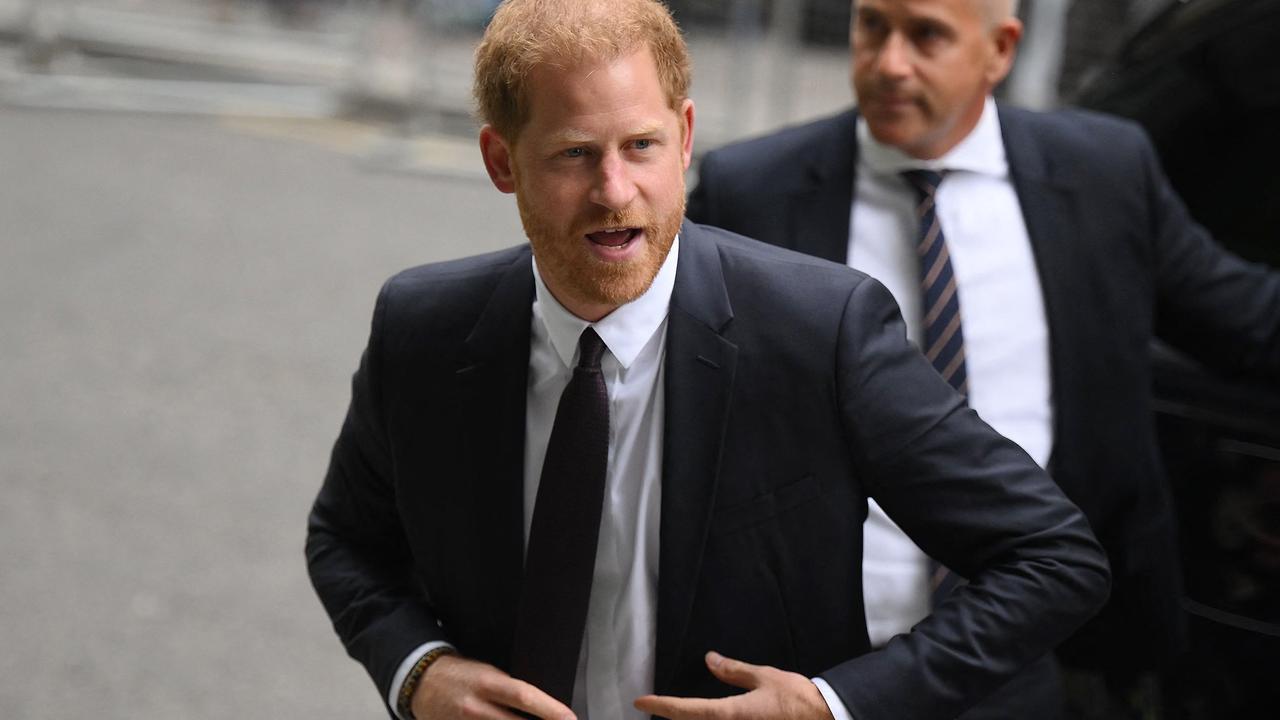
‘I was a child’: Harry grilled on the stand
Upon taking the stand, Harry was immediately questioned by Andrew Green, the lawyer representing Mirror Group Newspapers (MGN).
“If you think a question is unduly intrusive, please say so,” Mr Green said before commencing the cross-examination.
Mr Green asked Harry whether he could specifically recall seeing the articles that underpin his claim at the time they were published.
Harry said going through them as an adult “jogged memories” for him, but he couldn’t necessarily remember reading them as a child.
“I was a child, I was at school. These articles were incredibly invasive. Every single time one of these articles was written it would have an impact on my life, the people around me,” he told the court.
“Every one of these articles played an important role, a destructive role, in my growing up.
“As a child growing up, in my teenage years, I was under press invasion for most of my life, up until this day.”
Mr Green argued Harry was seeking recompense for “general press intrusion”, rather than the specific articles in question.
Harry said the articles were written “20 years ago” and therefore he couldn’t “speculate” about whether or not he read them at the time.
Under Mr Green’s questioning, Harry acknowledged that he does have “a longstanding hostility” towards the media, and that said hostility existed before it was revealed that British newspapers had used unlawful methods to gather information.
He said his lawsuit was intended to “hold people accountable” for their “utterly vile” actions, including those in power who “turned a blind eye” to the media’s illegal behaviour.
“How much more blood will stain their typing fingers before someone can put a stop to this madness?” he said in his witness statement.
“The fact they’re all ganging up to protect each other, like they first did after (the Leveson Inquiry), is the most disturbing part of it all, especially as they’re the mothership of online trolling.
“Trolls react and mobilise to stories they create. People have died as a result, and people will continue to kill themselves by suicide when they can’t see any other way out.”
Asked to specify who, exactly, had blood on their hands, he said “editors and journalists, for causing a lot of pain and, in some cases, inadvertently, death”.

Mr Green presented Harry with multiple articles in turn, suggesting the information contained within them was already public knowledge and therefore not a result of unlawful activity.
For example, a Daily Mirror article concerning the health of a gardener working for Harry’s father, then-Prince Charles, came after other articles on the subject in other newspapers.
“There is nothing on the face of the article that (suggests) phone hacking took place,” Mr Green put to Harry, who replied that “you would have to ask the journalists”.
Another example concerned the news that Harry and his brother, Prince William, had gone rock climbing instead of attending an event commemorating the Queen Mother. Harry said he believed it had been sourced via phone hacking.
“There was no need for The Daily Mirror journalist to use unlawful means, because the story had already been published by The Daily Mail and The Mail on Sunday,” said Mr Green.
“It’s a little unfair to suggest the journalist obtained the information by phone hacking when it was already in the public domain.”
As the cross-examination continued, Mr Green pushed Harry to make specific allegations against specific journalists, arguing “we are in the realms of total speculation”.
During one heated exchange, Harry attempted to turn questions on to the lawyer after the High Court was told a story subject to one of his complaints had come from a royal press release.
Mr Green responded: “I am here to cross-examine you, I am afraid that’s the way this works, Prince Harry.”
Harry feared he would be ‘ousted’ from family
As Harry took the stand, his 55-page witness statement to the court was released. In it, he got surprisingly political.
“Our country is judged globally by the state of our press and our government, both of which I believe are at rock bottom,” he said in the statement.
“Democracy fails when your press fails to scrutinise and hold the government accountable, and instead chooses to get into bed with them so they can ensure the status quo.”
Harry also took issue with the media’s coverage of his mother, Princess Diana’s, years-long affair with James Hewitt, which took place between 1986 and 1991. He singled out and article in The Sunday People, published in 2002, which suggested their was a bid to steal a sample of his DNA to check his parentage.
“Numerous newspapers had reported a rumour that my biological father was James Hewitt, a man my mother had a relationship with after I was born,” Harry said (he was born in 1984).
“At the time of this article and others similar to it, I wasn’t actually aware that my mother hadn’t met Major Hewitt until after I was born.
“At the time, when I was 18 years old and had lost my mother just six years earlier, stories such as this felt very damaging and very real to me.
“They were hurtful, mean and cruel. I was always left questioning the motives behind the stories.
“Were the newspapers keen to put doubt into the minds of the public so I might be ousted from the royal family?”

Elsewhere in his statement, Harry said he had played up to his perceived persona as a “thicko”, “drinker”, “drug taker” and “cheat” as a young man, thinking he “may as well ‘do the crime’” for which he was already known in the press.
However he worried that “was going to be expelled” from his school, Eton, over the allegations that he had taken drugs.
As a 20-year-old, he “wanted to go out and socialise”, but was plagued by the paparazzi “everywhere” he went even though “efforts were always being made to conceal” where he was going.
“I had to walk out, hold my head high and just try to push past and get in the car,” he said, adding that “on rare occasions” he even hid in the boot of vehicles to avoid attention.
“The paparazzi had me surrounded, their arms in my face. They don’t take photographs like you’d expect, it’s just their arms stretched out pushing a button, taking hundreds of photos all at once with the flash in your face.
“I couldn’t even see where I was going. As I reached the car, I could hear taunting. I was being egged on for a reaction, knowing I'd been out and had a few drinks.”
Harry singled out broadcaster Piers Morgan, the outspoken former editor of The Daily Mirror, for criticism, accusing Mr Morgan and his employees of “earwigging” into the “private and sensitive messages” of his mother, Princess Diana.
“(It) makes me feel physically sick, and even more determined to hold those responsible, including Mr Morgan, accountable for their vile and entirely unjustified behaviour,” he said.
“Unfortunately, as a consequence of my bringing my Mirror Group claim, both myself and my wife have been subjected to a barrage of horrific personal attacks and intimidation from Piers Morgan ... presumably in retaliation, and in the hope that I will back down.”

Harry’s absence yesterday frustrated judge
Justice Timothy Fancourt, who is presiding over the case, said he was “a little surprised” not to find Harry in court for the beginning of proceedings on Monday. Observers described the judge as “visibly irritated” by his absence.
Harry’s lawyer David Sherborne, said he had attended the birthday party of his daughter Lilibet in the United States on Sunday, and so had flown to London late in the evening. He argued Harry’s peculiar travel and security arrangements “obviously” put him in a “different category” to other witnesses.
Mr Green said he was “deeply troubled” by Harry’s “extraordinary” absence, and argued the Duke was potentially “wasting” the court’s time.
Mr Green stressed that he had “quite a lot to get through” in his cross-examination of Harry and would require more than one full day.
“I have to cross-examine him on 33 articles,” said Mr Green, whose case will involve arguing that many of the articles cited by Harry were not actually sourced illegally.
“And that cannot be done in one day if I am to put to him even a small number of the public domain documents, and in many cases explain the sources of the information.”
Justice Fancourt said he had previously instructed witnesses to be ready and available the day before they were due to testify, in case things proceeded more swiftly than anticipated.
Ultimately, opening statements did take up the entire day.
Originally published as Prince Harry gives evidence in phone hacking case


